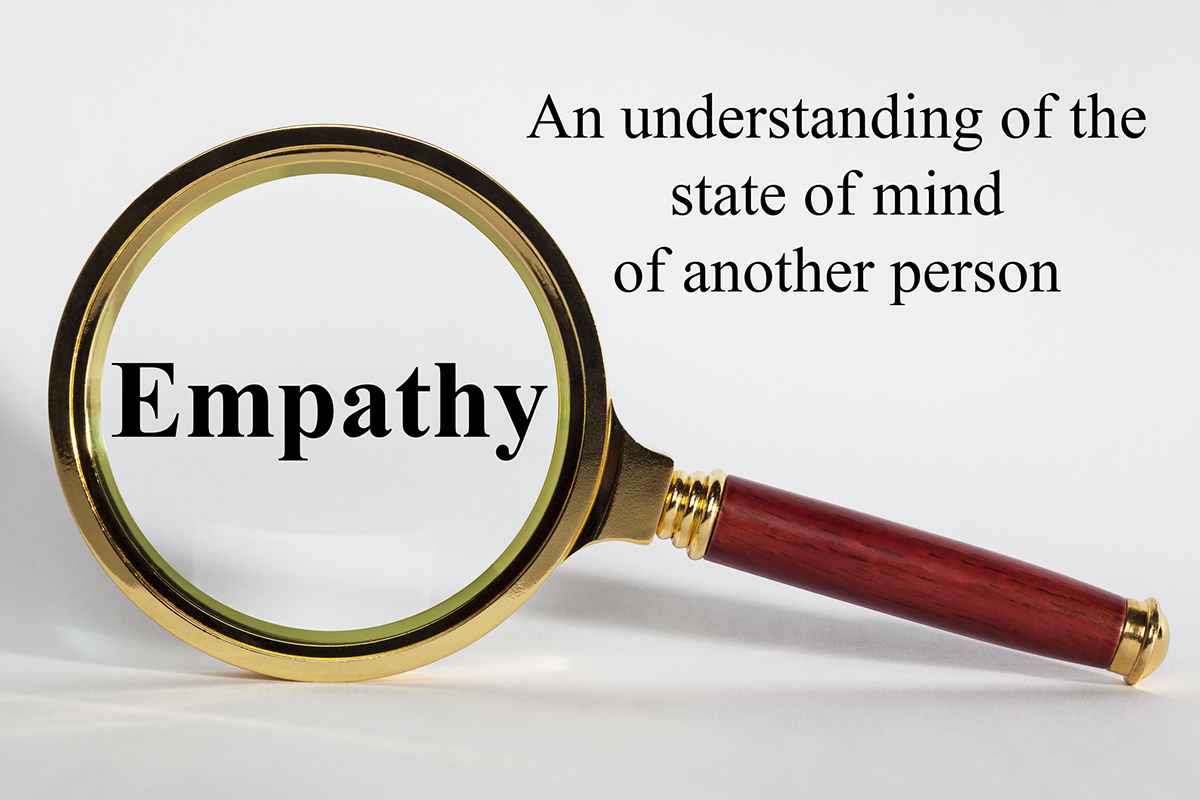Thomas Schramme, Professor of Philosophy at University of Liverpool, considers the important function of empathy in understanding others
Can empathy help to improve our lives? Can it have a function in alleviating interpersonal conflict and perhaps even contribute to more social cohesion? My answer is an emphatic “yes!” However, there are numerous caveats: First, empathy needs to be performed well. To know what that means, we require a better account of what successful use of empathy amounts to. Second, the natural trait of empathy, in order to serve its functions sufficiently, needs to be developed, honed and contoured. This is not different from many other skills human beings have. For instance, nobody has a good memory by nature.
Empathy within morality
The role of empathy for morality needs to be very cautiously carved out. Empathy is not the same as sympathy. Rather, empathy is a capacity enabling us to feel into another person and to see the world from their perspective. It is important to distinguish between the skill and the performance of empathy. Empathy can be performed badly; it might lead us astray. This has, for instance, been established in relation to situations that require strict neutrality. Empathy is not a magic bullet for morality, but a precondition of successful social life. If human beings were completely incapable of empathy, their life would be – to invoke Hobbes’ famous words – “solitary, poor, nasty, brutish and short”. In other words, without the skill to empathise, human morality would hardly be feasible. However, the performance of the skill as such does not guarantee morally good behaviour.
The main function of the performance of empathy is actually not moral – it does not itself make us more virtuous – but rather epistemic: Empathy helps us understand others. This is not so much in terms of simply gaining information about others, for instance, in which mental state they are. Studying their behaviour will often do for that purpose. Rather, empathy can provide a more holistic understanding of the specific perspective of another person, including their emotions. Understanding others is obviously an important condition of doing the right thing, because very often what is right depends on the perspective and feelings of another person. Hence, the use of empathy has an indirect moral significance.
Consider a friend who is upset because she has been vilified on social media. You know that your friend has strong anti-vax beliefs. It is likely that you will empathise, up to a point, with her. You will feel that she is upset, which will likely prompt you to think of ways to help. But should you, morally speaking, offer support? Should you, for instance, give solace to her? This is not simply a question of how to assess her own conduct that led to her being vilified, but also a problem of whether she actually needs and wants support. Even if she would benefit from being comforted, perhaps you are not the right person to offer it, say, because you strongly differ in opinion about the contested issue that caused the upset.

Understanding others
Understanding such contextual intricacies of morally charged situations requires a form of mind-reading activity. We need to understand the other person’s point of view. However, what exactly that implies and what is required for successful understanding is not clear. For instance, some people say that full understanding can only be achieved if we have lived through sufficiently similar experiences. They claim, say, that a man can never fully understand what it is like to be pregnant, or that a white person cannot really understand what it means to be racially abused.
It seems to me that it is important first to discuss what understanding is supposed to mean before we assess the role of empathy. Understanding, as mentioned earlier, is not simply a form of receiving information about the mental state of others. It does involve complex emotional and contextual comprehension of another person’s perspective. Occasionally, this is put in the phrase “to feel like the other feels” or “to know what it is like” for them.
Now, it is true, of course, that we can never exactly feel like the other person, simply because we are not the other person. But that verdict is not helpful. We might well be able to sufficiently understand them. Understanding comes in grades; it is a scalar notion. It is also a complicated state with many aspects. For instance, it seems to involve an element of endorsing the other’s point of view. It is hard to understand the perspective of someone we wholeheartedly disagree with.
Empathy is one of the skills we engage when aiming at understanding others. An important stepping stone on our way to understanding is the basic appreciation that the other person is actually another person: Someone who thinks, feels and generally has a subjective point of view. We do not perceive other human beings – and non-human animals, for that matter – as complicated machines. We are actually certain that the other feels. Empathy is a skill that enables this basic conviction that the other is a fellow being. In the history of philosophy, this particular function, which is an epistemological mechanism, has played a major role. This is partly due to the interest of philosophers in the challenge of solipsism – that is, the problem of whether other minds at all exist and how we gain knowledge regarding this fact, given that we don’t have direct access to other minds.
How can we better employ empathy in our quest to understand others? This is partly an empirical matter, which is studied in psychology. For instance, one important branch of research is concerned with empathic accuracy. Improving empathic performance is also a matter of theorising its very purpose. If we want to create findings on empathic accuracy, we need some account of what it is accurate about. Accordingly, we should theorise about the purposes of understanding and hence about the functions of empathic performance. This is not an empirical matter. Rather, it is an interdisciplinary endeavour, including numerous philosophical riddles.
Researching empathy
By now, it should be clear to the reader that researching empathy is an important task that provides an invaluable service to societies. We ought to be cautious in praising empathy too much and to confuse it with morally valuable dispositions. However, we should also avoid sweeping dismissals of empathy as employing a prejudiced and parochial attitude. Empathy, fully developed and performed effectively, offers an avenue to an understanding of the perspective of others, which is one of the first steps to a pro-social character and civility.
Please note: This is a commercial profile
© 2019. This work is licensed under CC-BY-NC-ND.











